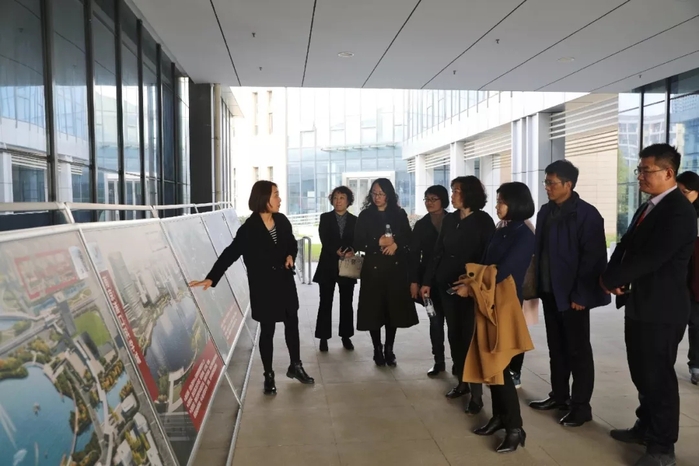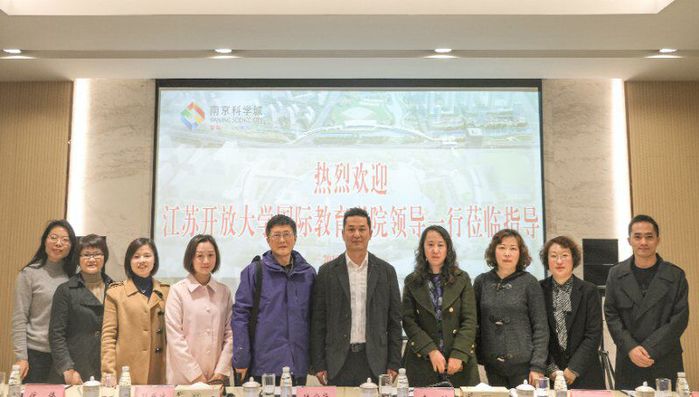On March 19, a delegation of School of International Education went to Pukou District, and made a field investigation in Guanghua Community, Laoshan National Forest Park and Jiangpu Development Zone, aiming to seek cooperation opportunity with the local government, community and businesses.
In Guanghua Community, party secretary Yang Xiaoling introduced their community briefly. Guanghua covers 14 square kilometers of land, with nearly 10,000 people living here. The community management functions well by providing service and support to the residents, business and local culture. They look forward to set up long-term cooperation with universities, and wish more young people with practical skills to be devoted to constructing beautiful countries.
In the office of Laoshan National Park management committee, director Jiang Chaogui introduced the overall construction planning of the national park to the delegation. Laoshan National Park, with 90.3% of forest coverage rate, was located in Pukou District, 20 km away from downtown. According to the plan, the national park will be developed into a suburban complex of natural resources protection, ecological experience, science education and recreation in ten years, and will become a“green lung” of Nanjing City.
In Science City of Pukou development zone, the delegation listened to the introduction of the integrated planning of Pukou district and had a discussion with Yan Bing, deputy director of Pukou District government, as well as leaders of development department and administration department of Science City. According to Yan Bing, in 2035, the population of Pukou district will reach 400,000, as large as that of a medium-sized city, and will be a strategic highland of AI technology and cultural & creative business in Nanjing. He also made proposals for the development of JSOU, such as graduate courses based on “enterprise+government+universities” cooperation mode, and undergraduate courses based on “2+1” mode.




